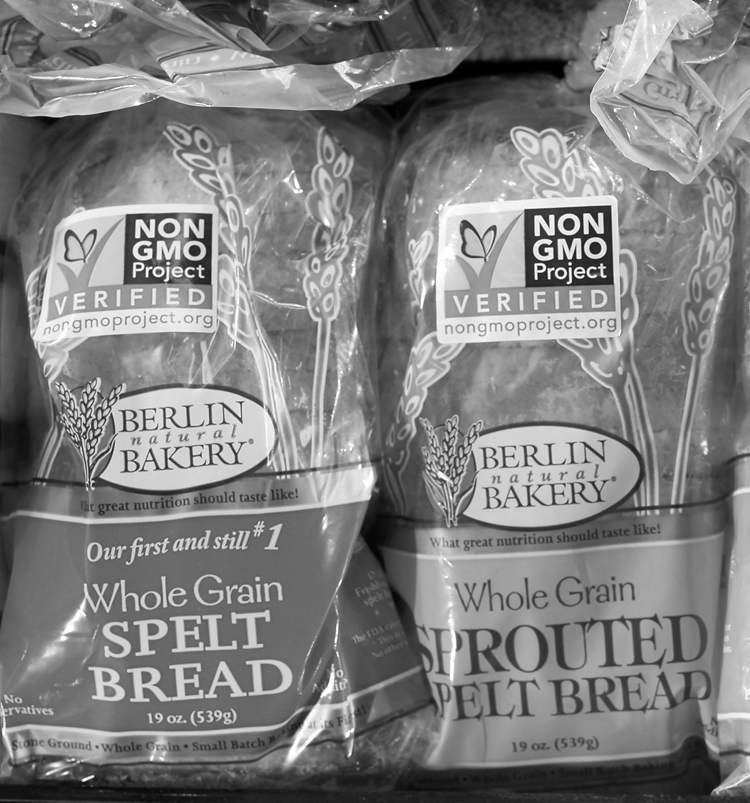‘Frankenfoods’ not a threat to consumers
Advertisement
Read this article for free:
or
Already have an account? Log in here »
To continue reading, please subscribe:
Monthly Digital Subscription
$0 for the first 4 weeks*
- Enjoy unlimited reading on winnipegfreepress.com
- Read the E-Edition, our digital replica newspaper
- Access News Break, our award-winning app
- Play interactive puzzles
*No charge for 4 weeks then price increases to the regular rate of $19.95 plus GST every four weeks. Offer available to new and qualified returning subscribers only. Cancel any time.
Monthly Digital Subscription
$4.99/week*
- Enjoy unlimited reading on winnipegfreepress.com
- Read the E-Edition, our digital replica newspaper
- Access News Break, our award-winning app
- Play interactive puzzles
*Billed as $19.95 plus GST every four weeks. Cancel any time.
To continue reading, please subscribe:
Add Free Press access to your Brandon Sun subscription for only an additional
$1 for the first 4 weeks*
*Your next subscription payment will increase by $1.00 and you will be charged $16.99 plus GST for four weeks. After four weeks, your payment will increase to $23.99 plus GST every four weeks.
Read unlimited articles for free today:
or
Already have an account? Log in here »
Hey there, time traveller!
This article was published 15/11/2012 (4799 days ago), so information in it may no longer be current.
While America was pondering who to elect president, California was contemplating Proposition 37. It would have required genetically modified organisms (GMOs) in food to be labelled.
It failed at the ballot box, but it has inspired a broader referendum about our continental food supply, and some think it could influence Canada’s policies on food labelling in the not-so-distant future.
California has a track record of exploring relatively eccentric ideas when it comes to food. The infamous retail tax on junk food and the ban of foie gras production without prohibiting distribution of the product are two recent examples. Regardless of the outcome, California should be commended for engaging its constituency in this very important debate.

GMOs exist for a number of legitimate reasons, and the outright ban of genetically-modified organisms in food, as some have suggested, would be unwise. First, current estimates suggest between 50 and 70 per cent of food sold in Canadian grocery stores contain some genetically engineered ingredients. In short, they are everywhere, and the reason for this is quite simple: Evidence shows genetically modified seeds make agriculture more efficient, and therefore significantly impact food prices. Some studies suggest the average grocery bill for Canadians could go up as much as $400 per year should the use of genetically modified ingredients become prohibited. Such a threshold keeps many Canadians from being food-insecure.
Second, to suggest genetically modified ingredients pose a threat to consumers is scientifically precipitous. Most studies that draw this conclusion are either methodologically unsound or contain flawed data sets. Thus far, science has demonstrated that products containing GMOs are perfectly safe for human consumption. Since they have only been on the market since 1994, however, more research is obviously warranted.
We should not be surprised by numerous interest groups that remain adamantly against the biotechnology industry and their products. For years, companies in this sector were only focused on selling the virtues of their technology to farmers. As a result, consumers were completely left out of the learning curve and were left to deal on their own with the spectre of the biotechnological unknown.
Seeing an opening, lobby groups against GMOs successfully occupied this information gap in the marketplace, which is why California had a plebiscite on the issue. Left to the devices of these lobby groups, consumers fear GMOs, pejoratively called “frankenfoods.”
Since the process leading to the seemingly sudden arrival of GMOs on our dinner plates did not respect the democratic leanings of our food systems, the biotechnology industry is now paying the price. Somewhat similar to what we witnessed with the trans fats debate a few years ago, GMOs represent the delicate balance between consumer confidence and food distribution efficiencies.
The many benefits stemming from the biosciences should be clearly demonstrated to consumers. To that end, labelling is an interesting option. GMOs clearly need to be demystified, but consumers are owed an explanation for their existence. Labelling remains the most effective and powerful tool to properly communicate risks to consumers in real time at points of sale.
For example, since August, it is now mandatory in Canada to mention allergens on food labels. It was the right thing to do to protect over one million Canadians who suffer from food allergies. In the case of GMOs, what hangs in the balance is consumer trust. Over time, we are likely to see more consumers feeling more comfortable with what biotechnology has to offer.
We are now at a point where consumers not only deserve more clarity, but where most can handle the science behind the food products they buy. The food industry will always get the consumers it deserves, many of whom are currently overwhelmed with a sense of suspicion and distrust of GMOs. Conveying the proper information could be a game-changer for both consumers and industry.
Unlike Canada, California has the economic power to be a trendsetter. Proposition 37 was filled with loopholes and special exemptions that would have made the legislation very costly to implement. Still, we should take note and engage Canadian consumers on this very important issue. A collective discussion on GMO labelling is not just about labelling, but more importantly about food democracy: giving consumers a chance to make well-informed choices.
Dr. Sylvain Charlebois is associate dean of the College of Management and Economics at the University of Guelph.
— Troy Media

